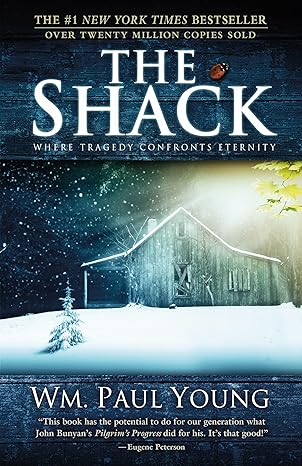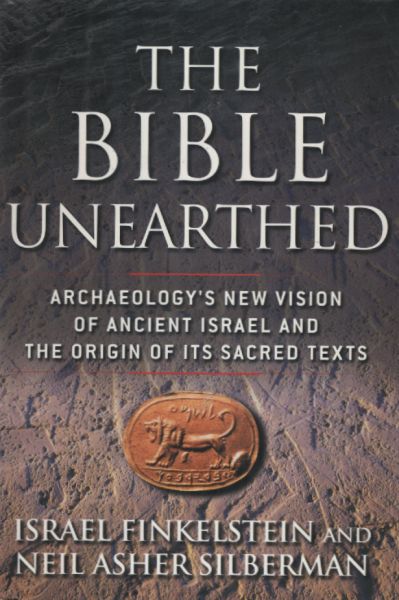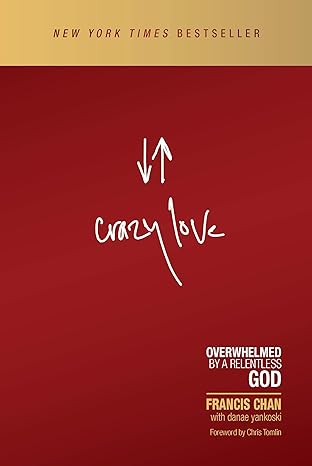
The Shack Book Review: Can Fiction Heal the Soul?
Tuesday, July 1, 2008When tragedy shatters our understanding of God, where do we turn? I'll be honest—The Shack by William P. Young is one of those books that people either absolutely love or approach with serious caution. But here's what I can tell you: it has moved millions of readers worldwide, and there's a reason for that. This isn't your typical Christian fiction. It invites us into Mack's world—a father absolutely devastated by his daughter's murder who receives the strangest invitation imaginable: a note asking him to return to the shack where his nightmare began. What happens next? Well, it challenges everything most of us were taught about God, suffering, and love. Let's dig into whether The Shack really lives up to all the buzz as a transformative exploration of grief, forgiveness, and grace.
About the Book
William P. Young's Unexpected Bestseller
Here's something I love: William P. Young never set out to write a bestseller. Picture this—a dad sitting down to write a Christmas gift for his six kids, pouring his heart onto the page, and then tucking the manuscript away in a box. That's exactly what happened. It wasn't until friends read it and practically begged him to share it with the world that he even considered publishing. Fifteen self-published copies in 2007. That's it. Fast forward, and we're talking more than 20 million copies sold and a major motion picture. Talk about God using the unexpected, right?
Key Themes and Concepts
The Shack does something gutsy—it takes deep theological waters and makes them feel accessible. The book explores healing through faith, but not in the way you might expect. Young presents the Trinity in ways that'll definitely make you do a double-take: Papa (God the Father) shows up as a warm, nurturing African American woman. Jesus appears as a Middle Eastern carpenter (which, let's be real, is probably closer to historical accuracy than many Sunday school paintings). And Sarayu (the Holy Spirit) is a mysterious, shimmering Asian woman who seems to be everywhere and nowhere at once.
If that makes you a little uncomfortable, you're not alone. But here's the thing—Young is deliberately shaking up our religious snow globes. The novel is all about relationship over rigid religion. It's like he's saying, "What if God isn't the distant judge you've been afraid of? What if He's the intimate friend who meets you in your mess?" The story tackles the journey from bitterness to forgiveness, wrestles with why suffering exists in a world supposedly governed by love, and dares to suggest we can find God's presence even in our darkest moments. Young's allegorical style takes those abstract theological concepts we hear in sermons and turns them into something you can feel in your gut.
The Good: Strengths and Praises
Emotional Depth That Transforms
Can I just say? The Shack absolutely nails the compassionate portrayal of God meeting us right where we are—mess and all. Young doesn't tiptoe around the raw anguish of losing a child. He doesn't hand us a spiritual Band-Aid and call it good. Instead, he walks straight into the pain with the kind of tenderness that makes you think, "Maybe this author actually gets it."
The conversations between Mack and the Trinity are unforgettable. There's Papa, gently taking apart all those broken, scary images Mack has of God—you know, the ones many of us carry around like heavy stones. There's Jesus, authentically playful and human as they work side by side in the workshop. And Sarayu, offering this poetic wisdom about pain and purpose that somehow doesn't feel preachy. These scenes hit home for anyone who's felt abandoned by those tidy religious explanations that never quite address the real hurt.
The cave scene—oh man, the cave scene. This is where Mack comes face-to-face with his burning desire for judgment and justice, and discovers something far more powerful: the transformative nature of forgiveness. It's one of the most gripping moments I've ever read in Christian fiction. Young isn't asking us to excuse evil or pretend it doesn't matter. He's inviting us to loosen our white-knuckled grip on bitterness and meet a God who's more interested in restoration than retribution.
Here's what really matters: for countless readers wrestling with pain, doubt, or wounds from church experiences gone wrong, The Shack has opened doors they thought were permanently locked. It's become more than just a book—it's a healing resource, a conversation starter at coffee shops and small groups, and honestly, a permission slip for people to reimagine their relationship with God.
The Not-So-Good: Critiques and Considerations
Theological Liberties and Controversy
Okay, let's talk about the elephant in the room. Any honest summary of The Shack has to acknowledge that this book is polarizing, especially among theological conservatives. And I get it—I really do. Young takes some significant creative liberties with how he portrays the Trinity. Some readers find it refreshing, like a cold drink on a hot day. Others? They consider it problematic, or even heretical.
The critiques are real. Does the book align perfectly with orthodox Christian doctrine? Well, it depends who you ask. Some theologians have raised concerns about how Young handles hierarchy within the Trinity, the nature of God's judgment, and themes that sound a lot like universal reconciliation. If you're someone who values doctrinal precision and clear biblical statements, the allegorical style might leave you frustrated, like trying to nail Jell-O to a wall.
Some readers also feel the narrative gets a bit preachy at times, with theological points taking over the story instead of flowing naturally through character development. And here's the key thing: if you pick up The Shack expecting a literal theology textbook, you're going to miss the point entirely. It's like expecting a parable to function as systematic theology—they're just different genres with different goals.
Who Is This Book For?
Think The Shack might be for you? It speaks most powerfully to:
- Christians seeking healing after loss or trauma—especially if you're tired of hollow platitudes
- Readers who are open to imaginative, unconventional portrayals of God (even if they make you squirm a little)
- Those wrestling with forgiveness and divine justice—trying to make sense of how they fit together
- Fans of spiritual fiction and theological allegory who enjoy stories that make you think
- Anyone questioning where God was when the worst thing happened
- People recovering from rigid or harmful religious backgrounds who need to rediscover a kinder God
Final Verdict: A Tender Invitation to Encounter
So, is The Shack biblical? Well friend, that depends entirely on what you're looking for. If you're expecting systematic theology laid out in perfect doctrinal order, you'll be disappointed. But if you're reading it as an allegory designed to crack open those calcified God-concepts we've all accumulated over the years? As imaginative fiction exploring what divine love might actually look like up close? The Shack succeeds brilliantly.
Young's debut offers something rare in Christian literature: a story that honors both your intellectual questions and your emotional wounds. It doesn't tie everything up with a neat bow—and honestly, that's kind of the point. Will it satisfy everyone? Nope. Does it even try to? Not really. But for readers who are walking through the valley of grief, or who are longing for a more intimate, less terrifying experience of God's presence, The Shack offers something powerful and provocative.
This isn't a book to analyze from your theological high tower. It's meant to be experienced, to mess with your comfortable assumptions, and to whisper this radical idea: what if the God who created you is far more beautiful, accessible, and healing than the scary images you've been carrying around?
Rating: 4.5/5 stars — A transformative read that courageously explores God, grief, and grace through imaginative storytelling. Not perfect, but profoundly impactful for the right reader.
More Books
Comments



